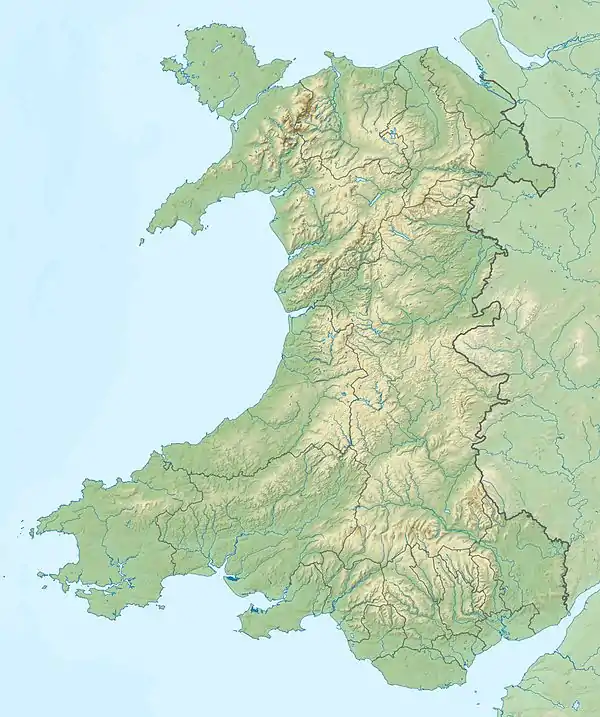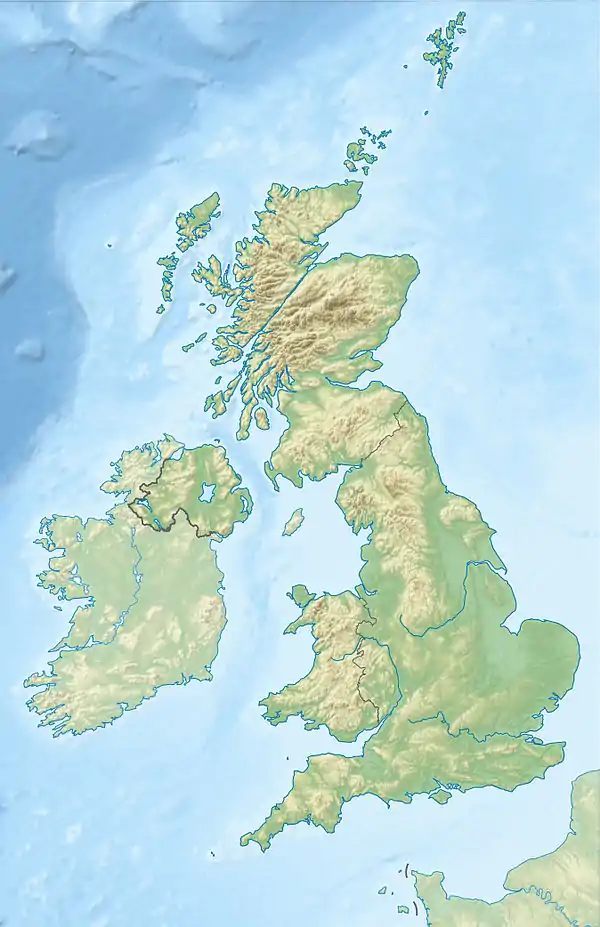Coygan Cave
Coygan Cave was an ossiferous cave near Laugharne in Carmarthenshire, Wales. The cave was about a mile from the sea and located in a limestone hillside, but has been destroyed by quarrying.[1]
 location in Wales  Coygan Cave (the United Kingdom) | |
| Location | near Laugharne |
|---|---|
| Region | Carmarthenshire, Wales |
| Coordinates | 51°45′16″N 4°29′12″W |
| History | |
| Material | Karst |
Although prehistoric handaxes were found in the cave, there were no human bones. Three triangular handaxes (bout coupé) suggested that the cave had been used by Neanderthals some time between 64,000 and 38,000 years BCE.[2] These axes were made of local materials. The cave was subsequently a den for hyenas, and was described by zoologist George Rolleston, prior to his death in 1881, as "the most perfect instance of a hyena den" he had seen.[3] Rev G N Smith, a correspondent of Charles Darwin, collected many of the bone samples from the cave.[4] Some of the finds are now held by the National Museum of Wales and others by Carmarthenshire County Museum.[5]
References
- Royal Commission on the Ancient and Historical Monuments of Wales. Accessed 8 June 2014
- Aldhouse-Green et al. 1995
- Edward Laws, Little England Beyond Wales (1888).
- William Boyd Dawkins, Cave hunting, researches on the evidence of caves respecting the early inhabitants of Europe (1874) p 289
- Gathering the Jewels - Theme: Coygan Cave, Carmarthenshire Archived 2012-07-09 at Archive.today. Accessed 8 June 2014